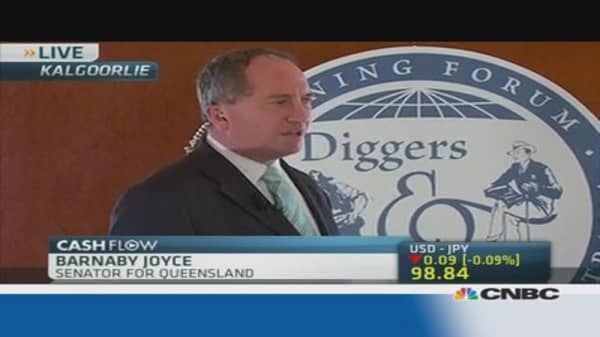As Australia faces the most hotly-contested federal election in recent memory, financial markets are looking to position their trades ahead of a vote that could see the end of three years of a minority government.
The September 7 vote pits the conservative opposition party - the Liberal-National Coalition - headed by Tony Abbott, against the incumbent Labor Party led by Prime Minister Kevin Rudd. Opinion polls give a slight lead to the Coalition, in an election race centered around employment and management of Australia $1.5 trillion economy.
Shane Oliver, head of investment strategy at AMP Capital said historically Australian stocks tend to experience some downside ahead of the election before rising after the vote.
"I certainly wouldn't be adding to shares at the moment," Oliver said. "It [Australian equities] is vulnerable or facing a period of flat lining over the next month or so in the run up to the election and that would suggest foreign investors may want to avoid the Australian market over that short period," Oliver said.
"But history also suggests we get a rebound after the elections so as we get closer to the election, it would be case for investors to buy in," he added.
After suffering steep falls in June, in tandem with the broad selloff in commodities on the prospect of the U.S. Federal Reserve winding back monetary stimulus and a slowdown in China, Australia stocks rebounded 5.5 percent in July to become one of the best performing stock markets in the Asia-Pacific region. The benchmark S&P ASX 200 is up about 8 percent for the year.
(Read More:Australia's stock market is on 'fire')




